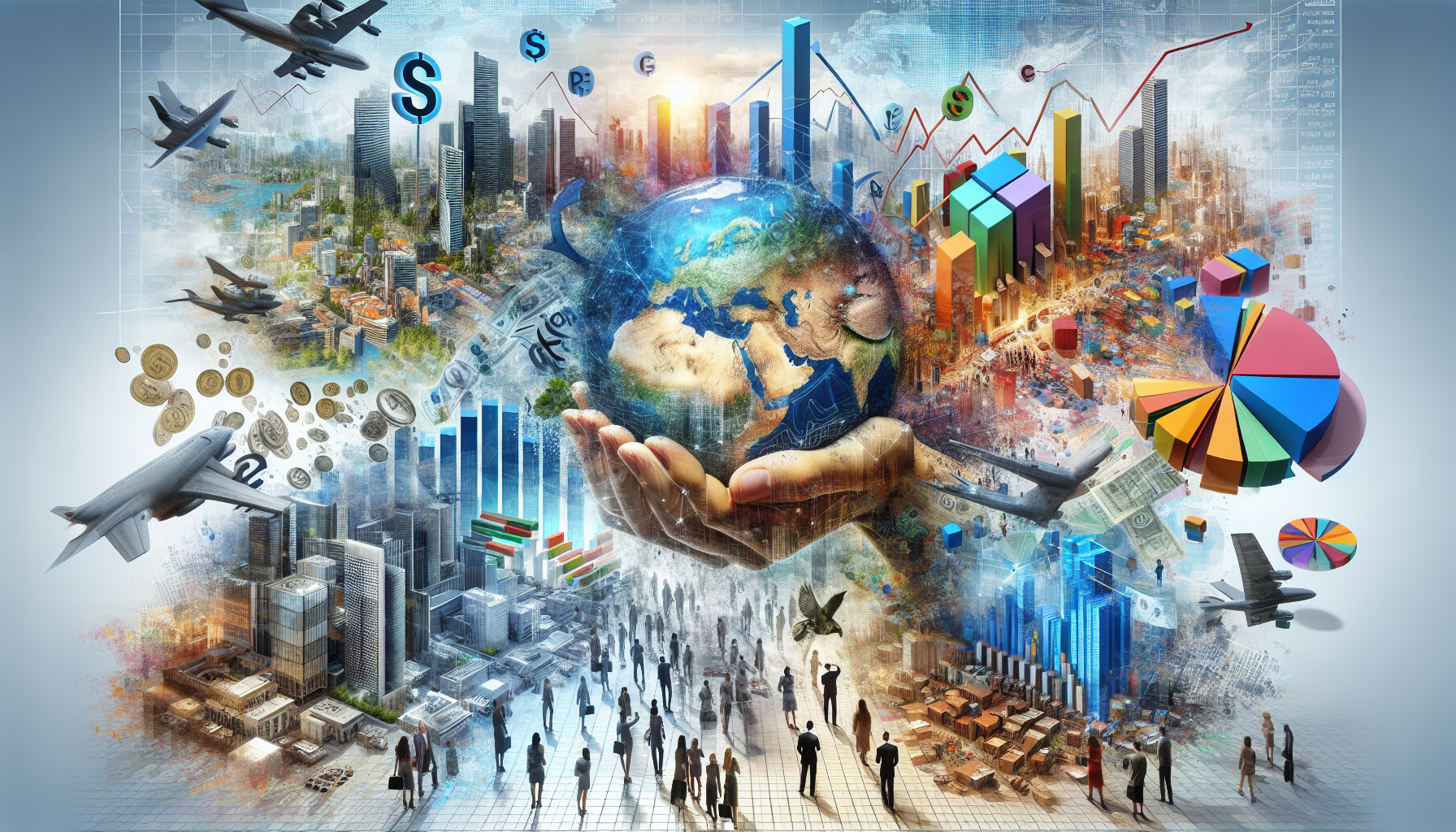Advertisements
Gross Domestic Product, or GDP, is one of the most important indicators for measuring a country's economic activity. It represents the value of all goods and services produced in a given period of time in a nation. But how important is GDP really for the global economy?
Understanding the meaning and relevance of GDP is essential to understanding how the global economy works. GDP not only reflects a country’s financial health, but also directly influences investment decisions, public policies, and the well-being of the population.
In this article, we will explore in detail how GDP impacts the global economy and why it is essential to monitor this indicator to understand the direction of the global economy. We will uncover the secrets behind this important economic indicator and how it can influence the international economic scenario.
Discover the meaning and importance of GDP for the world economy
What is GDP?
Gross Domestic Product (GDP) is a measure of the total market value of all final goods and services produced in a country during a given period of time. It is widely used to assess a country's economic health and capacity for growth.
Importance of GDP
GDP is one of the main metrics used by economists and governments to measure a country's economic performance. It provides valuable information about the production and income generated in the economy, allowing for the assessment of growth, productivity and income distribution. In addition, GDP is essential for formulating economic policies and making investment decisions.
Advertisements
- GDP is a key indicator of a country's economic well-being.
- It influences the investment decisions of companies and governments.
- GDP growth is generally associated with increased employment and income.
- Comparing GDP between countries allows us to assess economic disparities and identify opportunities for growth.
Impact of GDP on the world economy
A country’s GDP not only affects its own economy, but also has repercussions on a global scale. The economic performance of major economies such as the United States, China and the European Union has a significant impact on financial markets, international trade and exchange rates.
Therefore, understanding the meaning and importance of GDP is essential to understanding the dynamics of the global economy and the interconnections between different countries. GDP is not just a statistic, but an essential tool for analyzing and driving economic growth on a global scale.

Furthermore, it is important to emphasize that GDP is not the only relevant economic indicator for analyzing a country’s financial health. Other factors, such as the Human Development Index (HDI), unemployment rate, inflation and income distribution, also play a crucial role in understanding a nation’s economic reality. Therefore, it is essential to consider a variety of indicators to obtain a comprehensive and accurate view of the global economic situation and thus make informed and strategic decisions to promote sustainable and equitable development.
Conclusion
In summary, Gross Domestic Product (GDP) plays a fundamental role in the global economy, being an essential measure for assessing a country’s economic performance. GDP provides valuable information about production, income and economic growth, influencing the investment decisions of companies and governments. Furthermore, GDP not only impacts a country’s domestic economy, but also has repercussions at a global level, affecting financial markets, international trade and exchange rates.
Understanding the meaning and importance of GDP is crucial to analyzing the dynamics of the global economy and the interconnections between countries. GDP growth is directly related to increased employment and income, and is a key indicator of a nation’s economic well-being. By comparing GDP across countries, it is possible to identify economic disparities and opportunities for growth.
Advertisements
In short, GDP is not just a statistic, but an essential tool for driving economic growth on a global scale and for guiding the formulation of effective economic policies. Therefore, understanding GDP is fundamental to the analysis and development of the global economy.
Additionally, GDP analysis allows us to assess the effectiveness of the economic policies implemented by a country. For example, fiscal and monetary stimulus policies can have a direct impact on GDP growth, and monitoring these metrics allows for necessary adjustments to maximize results. Furthermore, understanding GDP changes over time provides a historical perspective that is vital for predicting future trends and identifying potential risks and opportunities.
The sustainability of GDP growth is also a crucial aspect. GDP growth resulting from unsustainable economic practices can lead to long-term problems such as environmental degradation and social inequality. It is therefore essential that economic growth is inclusive and sustainable, ensuring that benefits are distributed equitably among the population and that natural resources are preserved for future generations.
Another important dimension of GDP is its relationship with other economic and social indicators. For example, while GDP is an important indicator of economic growth, it does not necessarily capture the quality of life of citizens. Complementary indicators, such as the Human Development Index (HDI) and the Gini Index, are needed to provide a more holistic view of a nation’s progress. These indicators help us understand how economic growth translates into social well-being, health, education, and income distribution.
Global economic interdependence also means that changes in one country’s GDP can have ripple effects on other economies. Globalization and international trade have tightened economic relationships between countries, and a significant increase or decrease in GDP in one major economy can influence financial markets and supply chains around the world. It is therefore crucial that policymakers consider not only the domestic impacts but also the global repercussions of their economic decisions.
In short, GDP is a multifaceted tool that, when analyzed in conjunction with other indicators, provides a comprehensive and detailed view of a country’s economic health and its role in the global economy. A deep understanding of GDP and its implications enables a more informed and strategic approach to sustainable and inclusive economic development.




